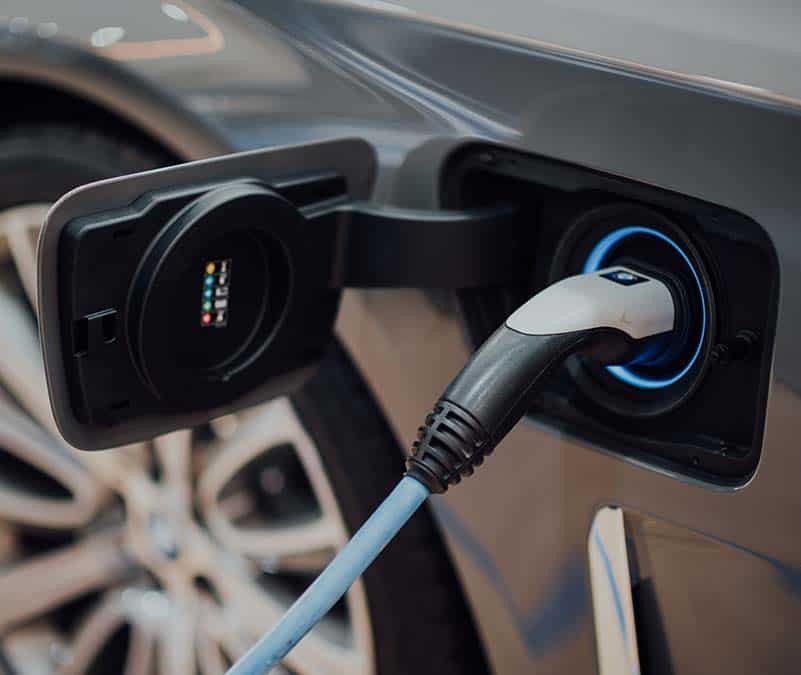Installing an EV Charger at Home – FAQ

Why an FAQ about home EV charger installation?
As a Tesla Certified installer in San Antonio, All Star Electric receives an increasing number of requests from homeowners in the area to install a Level 1 or Level 2 EV charger in their homes. Although Tesla has a great program for their new car owners, there is a clear convenience value in having an EV charger installed in the garage.
With this trend come a lot of questions, and we have put together an FAQ on the topics surrounding the installation and the operation of an EV charger. We have tried out best to group the questions by topic of interest, so refer to the section that matters to you. People express their questions in their own way, so some answers may be repetitive: this is because the questions were asked differently.
1. EV charger installation
Can I install an EV charger myself?
- Technically, yes, you could install an EV charger yourself. However, Tesla strongly recommends to have a Tesla-certified installer handle the installation. This ensures that it meets local electrical codes, safety standards, and that the warranty of the charger remains valid. We are a Tesla-Certified installer.
Can anyone install an electric car charger (in their home)?
- While anyone can purchase an electric car charger, the installation must be done by a professional to ensure safety and compliance with local regulations. Improper installation can lead to electrical hazards, voided warranties, and potential damage to your vehicle.
Can a local electrician install an EV charger (in a home)?
- Yes, a local electrician can install an EV charger as long as they are licensed and familiar with the specific requirements for EV charger installations. It’s advisable to choose an electrician who has experience with EV charger installations. Best option: Select an electrician who is Tesla-certified.
How long does it take to install an EV charger?
- The installation time can vary based on the complexity of the installation, but on average, it takes about 2-4 hours for a Level 2 charger. Factors that can affect the time include the distance from the electrical panel, any required upgrades to the panel, and whether a conduit needs to be run.
What do I need to know before installing an EV charger?
Before installing an EV charger, consider the following:
- Power Requirements: Make sure your electrical panel can handle the additional load.
- Location: Determine the best location for the charger in terms of accessibility and proximity to your vehicle’s charging port.
- Permits: Some local jurisdictions require permits for EV charger installations.
- Wiring: Level 2 chargers typically require a 240V circuit.
- Charger Type: Ensure the charger is compatible with your vehicle.
Caution: For the reasons mentioned in other answers, we do not recommend that you install the EV charger yourself. Working with electricity is dangerous, and installing an EV charger is a task best left to certified professionals.
Can I install a “fast” EV charger at home?
- Fast chargers, often referred to as Level 3 or “DC fast chargers”, are primarily designed for commercial use due to their high power requirements. While it is technically possible to install one at home, it would require significant electrical upgrades and would be cost-prohibitive for most homeowners. Level 2 chargers are more suitable for home installations.
Should I install my EV charger inside or outside?
- EV chargers can be installed both inside (e.g., in a garage) or outside. If installing outside, ensure the charger is rated for outdoor use and is weatherproof. Best option: have a certified professional install it for you.
Where is the best place to install an EV charger?
- The best place to install an EV charger is close to where you park your vehicle, ideally minimizing the distance the charging cable needs to reach. If you have a garage, inside the garage is often ideal. If not, an exterior wall close to your parking spot is suitable. Your installer will work with you to ensure the location is convenient and minimizes tripping hazards.
2. Charging time with an EV charger
How long does it take to charge an EV with a regular outlet?
- Charging an EV with a regular 120V outlet (often referred to as Level 1 charging) can take anywhere from 8 to 20 hours for a full charge, depending on the vehicle’s battery capacity.
How long does it take to charge an electric car on 110V?
- Charging on a 110V outlet is similar to a 120V outlet (both are Level 1 charging). It can take 8 to 20 hours for a full charge, depending on the vehicle’s battery size.
How long does it take to charge a car with a 50 kWh battery capacity?
- On a Level 1 charger (110V/120V), it could take 20-40 hours.
- On a Level 2 charger (240V), it could take 4-8 hours.
- On a DC fast charger, it could take 30 minutes to 1.5 hours, depending on the charger’s power level.
How fast is a Level 1 EV charger?
- A Level 1 charger operates on a standard 120V household outlet and typically delivers 2 to 5 miles of range per hour of charging. It has a power output of about 1.4 kW to 1.9 kW.
How fast is a Level 2 EV charger?
- A Level 2 charger operates on a 240V circuit (like what large appliances use) and can deliver 12 to 60 miles of range per hour of charging, depending on the charger’s amperage and the vehicle’s onboard charger capacity. They typically have power outputs ranging from 3.3 kW to 19.2 kW, with most residential chargers being in the 6.6 kW to 7.7 kW range.
How fast is a 25kW charger?
- A 25 kW charger is typically considered a fast charger but not as fast as the high-power DC fast chargers. Depending on the vehicle and its battery capacity, a 25 kW charger can deliver approximately 75 to 100 miles of range in an hour.
How fast is AC charging?
- AC (Alternating Current) charging refers to the type of current from standard electrical outlets and is used in Level 1 and Level 2 chargers. As mentioned:
- Level 1 AC charging delivers 2 to 5 miles of range per hour.
- Level 2 AC charging delivers 12 to 60 miles of range per hour.
- The exact speed will depend on the charger’s power output and the vehicle’s onboard charger.
What is the fastest home EV charger?
- The fastest home chargers are high-amperage Level 2 chargers. These can have outputs up to 19.2 kW (80 amps at 240V), but most homes may not support this high amperage without significant electrical upgrades. Brands like Tesla offer home chargers (like the Tesla Wall Connector) that can deliver these higher power levels, but the actual charging speed will also depend on the vehicle’s onboard charger capacity.
3. Cost of an EV charger, cost of a charge, other questions
How much does it actually cost to charge an electric car?
The cost to charge an electric car depends on several factors:
- Electricity Rates: The cost of electricity varies by state, region, and sometimes, time of day.
- Battery Capacity: Different EVs have different battery sizes. For example, if an EV has a 60 kWh battery and the electricity rate is $0.13 per kWh, the cost to fully charge from empty would be 60 kWh x $0.13 = $7.80.
- Charging Efficiency: Not all the electricity used from the grid goes into the battery; some is lost as heat ( the “Joule effect”). Charging efficiency can vary but is often around 85-90%.
How much does it cost to charge a car with a 100 kW battery capacity?
- Cost = Battery Capacity (kWh) x Electricity Rate (per kWh)
- Using an average rate of $0.13 per kWh: Cost = 100 kWh x $0.13 = $13.00 for a full charge from empty.
How much does a charging port for an electric car cost?
- The cost to install a home EV charging station can range from $500 to $2,000, excluding the charger’s cost. Factors affecting the price include electrical work required, permit fees, and labor rates. Call us for a quote.
Are electric car charging stations free?
- Some public charging stations are free, especially those provided by municipalities, businesses, or as promotional offers. However, many public charging stations, especially fast chargers, have fees.
Are Tesla charging stations free?
- Some Tesla owners receive free Supercharging as a 1-year promotion. However, most pay either per kWh or per minute, depending on local regulations and the specific Supercharger station.
Is it cheaper to charge with a Level 2 EV charger?
- The cost per kWh doesn’t change with the charger level, but Level 2 chargers are more efficient than Level 1 chargers, so there might be less energy loss during charging.
Is charging an electric car cheaper than gasoline?
- It is difficult to give a straight answer to the question. The range of responses found on the web is wide.
- For instance, CNBC reports that according to the EPA, the average fuel economy of a vehicle powered by an internal combustion engine (ICE) in 2020 was 25.7 mpg (or 3.9 gallons for a 100-mile drive). On average, an EV would consume 34.7 kWh for the same distance. It would depend on where you buy your gas and where you charge your EV. Using the national averages provided by the EPA, the cost for this range in April 2020 would have been $7.56 for a gas car vs. $4.62 for an EV. The difference has markedly increased over the past 2 years in favor of the EV.
- In an article published in June 2021 TheHill.com states that according to a study by the U.S. Department of Energy, the total cost of ownership of an EV is 4 cents/mile lower than that of a gas-powered vehicle. This would be due to gas prices and to the difference in maintenance costs of the 2 types of vehicles.
- However, a research study conducted by economist Michael Plante and analyst Sean Howard and published on Feb 22, 2022 on the Dallas Federal Reserve website, calculated that, adjusted for inflation, the cost “per mile of range” of an EV came to $214 in 2021, vs. a cost “per mile of range” of $104 for a gas-powered car. This calculation takes into account the MSRP of the average vehicle, i.e. more than just the cost of gas. What it shows is that owning a Tesla still remains more costly than owning an average gas-powered car.
- Overall, the answer to the question depends on what you include in the cost (purchasing the car, servicing/maintaining it, filling up the tank/battery), and on where you buy your gas/electricity. It seems however that the cost differential is already favoring EV owners over gas-powered vehicle owners, and the difference may widen in future years.
How long does an EV charger last?
- A well-maintained Level 2 EV charger can last between 10 to 20 years. The lifespan can vary based on usage, environmental conditions, and the quality of the charger.
How long do Tesla batteries last?
- Tesla batteries are designed to last a long time, with most expected to retain 70-80% of their capacity after 8 years or 100,000-150,000 miles. Some Tesla vehicles have exceeded 300,000 miles with only minimal battery degradation.
What percentage of EV owners have home chargers?
- According to BCG, in 2023, “more than 60% of EV owners have opportunities to charge both at home and at work, and fewer than 5% only have access to public charging stations“. (Source:
Can all electric cars use the same chargers?
- Most electric cars can use universal Level 1 and Level 2 chargers with a J1772 connector. However, DC fast charging connectors vary (CHAdeMO, CCS, Tesla Supercharger). Adapters are available for some connectors.
Is 100 amp service enough to charge an electric car?
- Yes, a 100 amp service can support an EV charger. A typical Level 2 charger requires a 40 amp circuit. However, other household loads should be considered to ensure the total demand doesn’t exceed the service capacity. Call us: we Tesla-certified installers and professional electricians. We will calculate your load accurately.
How many kWh does it take to charge a car?
- It depends on the car’s battery capacity. For example, a car with a 60 kWh battery will need 60 kWh to charge from 0% to 100%.
How many times can I charge my EV?
- Modern EV batteries are designed for hundreds of thousands of miles of use and can be charged thousands of times. However, the battery’s capacity might degrade slightly over time.
Should I leave my EV charger plugged in all the time?
- It is generally safe to leave your EV charger plugged into the outlet, but you don’t necessarily need to leave your vehicle plugged in all the time. Once the vehicle is fully charged, most modern EVs will stop drawing power. However, if you’re not using the charger, unplugging it can prevent potential electrical issues and save a small amount of standby power.
Can you plug an EV into a normal socket?
- Yes, most electric vehicles come with a Level 1 charger that can be plugged into a standard 120V household outlet. This type of charging is slower and is typically used for overnight charging or for vehicles with smaller battery capacities.
Can I plug an EV into any outlet?
- While you can plug a Level 1 charger into any standard 120V outlet, Level 2 chargers require a 240V outlet, similar to what large appliances like dryers use. It’s essential to ensure that the circuit can handle the load and that the outlet is in good condition. Always consult the vehicle’s and charger’s manuals for specific requirements. Call a certified EV charger installer to avoid costly mistakes.
Is it OK to charge an EV everyday?
- Yes, it is okay to charge an EV every day. Modern EVs are designed to handle frequent charging. However, for battery longevity, auto makers often recommend not to regularly charge to 100% but rather to a lower set limit, like 80% or 90%. Computer manufacturers usually have the same recommendations for their batteries.
Does an EV charging station add value to a home?
- On the face of it, installing an EV charging station could potentially add “perceived value” to a home. As electric vehicles become more popular, buying a home with a charging station already installed can be an attractive feature, especially in areas where EV adoption is high. But a local real-estate agent would be in a better position to answer this question for your location.
More to come
As we receive more questions from homeowners interested in getting an EV charger installed at home, we will expand this FAQ. We hope it is useful, and feel free to ask us more questions using our contact form. If you need a price to install a LEvel 1 or Level 2 EV charger at home, please call us at (210) 391-0274. We will be glad to study your location and give you a quote. All Star Electric is a Tesla-Certified installer in San Antonio, and does all electrical modifications necessary to ensure your EV charger is safely installed and fully operational at all times.




























